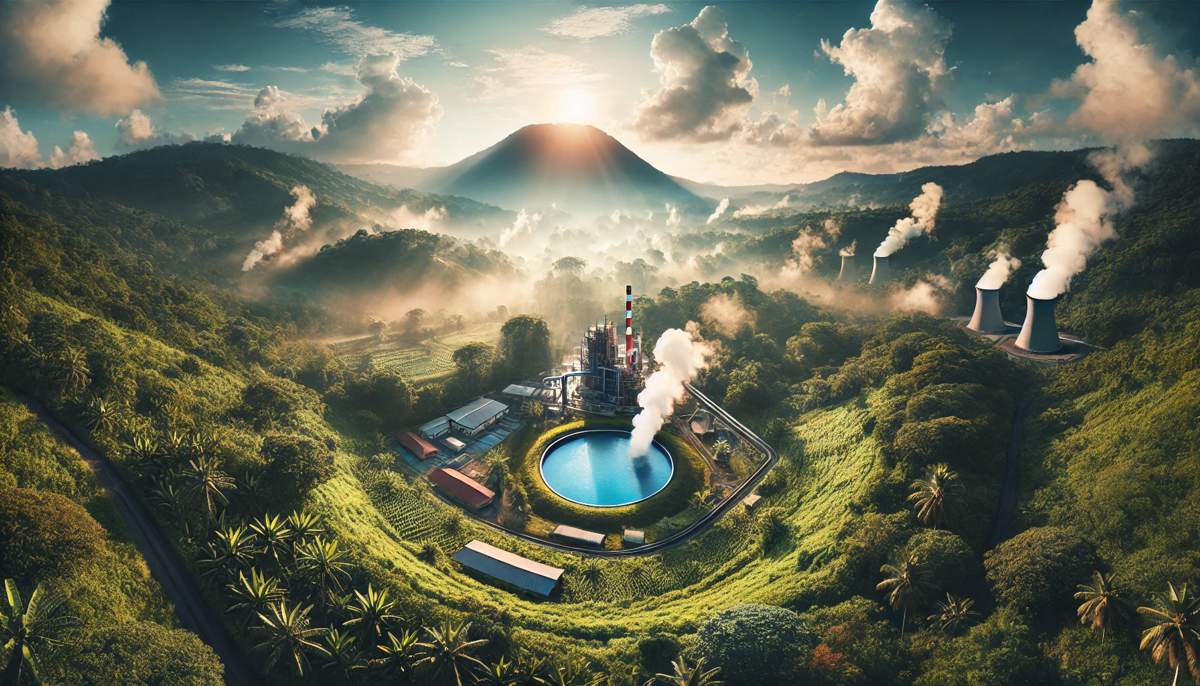ADB Investing in Indonesia’s Geothermal Ambitions
The Asian Development Bank (ADB) has taken a monumental step in supporting Indonesia’s green energy transition with a $92.6 million financing package.
Partnering with PT Supreme Energy Muara Laboh (SEML), this initiative will fund the expansion of geothermal power resources at the Muara Laboh site in West Sumatra. The project includes the construction, operation, and maintenance of a new geothermal power plant with a planned capacity of 83 megawatts (MW), advancing Indonesia’s renewable energy agenda while addressing long-term energy security.
Indonesia, home to the world’s largest geothermal reserves—an estimated 23.1 gigawatts—utilises only a fraction of its potential. By harnessing this abundant resource, the country aims to meet ambitious clean energy targets, providing affordable and sustainable power to millions.
The Anatomy of the Financing Agreement
ADB’s comprehensive finance package underscores the complexity and ambition of the project. The $92.6 million deal comprises three main components:
- $38.8 million from ADB’s ordinary capital resources.
- $38.8 million syndicated as an ADB B loan from Sumitomo Mitsui Banking Corporation, with ADB as the lender on record.
- $15 million concessional loan from the Australian Climate Finance Partnership (ACFP).
As the lead structuring bank, ADB mobilised private capital while mitigating risks for Indonesia’s greenfield geothermal Independent Power Producer sector. Notably, this is the first time ADB has achieved this feat in the sector, marking a significant milestone for sustainable energy financing.
ADB’s partners in this endeavour include the Japan Bank for International Cooperation (JBIC) and commercial banks supported by Nippon Export and Investment Insurance. Together, these organisations exemplify the synergy between public and private sectors in tackling climate change.
A Step Toward Sustainability
“Investment in geothermal power can be challenging, making the support of ACFP and the Government of Australia vital to mitigate risks and deliver a project that helps Indonesia meet its clean energy targets and deliver affordable electricity,” remarked Jiro Tominaga, ADB’s Country Director for Indonesia. “This project will help reduce greenhouse gas emissions and promote sustainable energy solutions that enhance the country’s long-term energy security.”
Such collaboration reflects a strategic focus on reducing reliance on fossil fuels. By leveraging geothermal energy, Indonesia moves closer to achieving its nationally determined contributions (NDCs) under the Paris Agreement. The Muara Laboh expansion alone is expected to significantly cut greenhouse gas emissions, providing a scalable model for renewable energy initiatives across Southeast Asia.
A Legacy of Geothermal Leadership
ADB’s involvement in Indonesia’s geothermal sector is not new. Since 2013, the bank has financed four major geothermal projects, including Muara Laboh Stage 1, Rantau Dedap, and the Sarulla power project. These efforts have solidified ADB’s role as a pioneer in renewable energy financing, particularly in Indonesia.
Nisriyanto, SEML’s President Director, expressed gratitude for ADB’s continued support, saying: “This project not only strengthens our renewable energy portfolio but also contributes to the local economy by creating jobs and fostering community development.”
Beyond financial benefits, these projects create economic opportunities for local communities, fostering a sense of shared progress. From infrastructure development to workforce training, the ripple effects are transforming the region.
Bridging Gaps with Blended Finance
A standout feature of this project is the involvement of the Australian Climate Finance Partnership (ACFP), a concessional blended financing facility managed by ADB and funded by the Australian Government. ACFP is designed to address market gaps by derisking high-impact climate projects and attracting private sector investments.
Through ACFP’s $15 million concessional loan, this project highlights the power of blended finance in overcoming barriers to renewable energy investment. By mitigating risk, such initiatives pave the way for scalable, high-impact projects that might otherwise struggle to secure funding.
A Collaborative Venture
PT Supreme Energy Muara Laboh (SEML) is a joint venture embodying international collaboration. Combining the expertise of PT Supreme Energy, Japan’s Sumitomo Corporation, and INPEX Corporation, SEML is committed to unlocking Indonesia’s geothermal potential. Together, these entities pool resources and knowledge to ensure the success of this groundbreaking project.
Such collaborations are vital for tackling the challenges of geothermal exploration, which often involve high upfront costs and technical complexities. By sharing risk and expertise, SEML exemplifies how public and private entities can come together for a common cause.
Driving Asia’s Green Transition
Established in 1966, ADB has consistently championed sustainable development across Asia and the Pacific. With 69 member countries—49 from the region—the bank has spearheaded initiatives that promote economic growth while addressing pressing global challenges like climate change.
ADB’s broader mission is encapsulated in its long-term Strategy 2030, which prioritises clean energy, climate resilience, and inclusive growth. The Muara Laboh project perfectly aligns with these goals, serving as a blueprint for future renewable energy investments in emerging markets.
Why Geothermal Energy Matters
Geothermal energy is often described as the unsung hero of renewable energy sources. Unlike solar or wind, it provides a stable and continuous power supply, unaffected by weather conditions. For a country like Indonesia, located along the Pacific Ring of Fire, geothermal energy offers an unparalleled opportunity to harness its natural resources sustainably.
By tapping into these reserves, Indonesia not only diversifies its energy mix but also reduces its reliance on imported fossil fuels. This dual benefit strengthens the country’s energy security while contributing to global climate goals.
Paving the Way for a Greener Future
The expansion of the Muara Laboh geothermal facility is more than just an energy project; it’s a testament to what can be achieved through international cooperation, innovative financing, and a shared commitment to sustainability. As Indonesia moves closer to realising its geothermal potential, projects like this serve as a beacon of hope for a greener, more resilient future.
With ADB leading the charge and partners like SEML, ACFP, and JBIC in the mix, the possibilities for renewable energy development in Indonesia seem boundless. As these initiatives gain momentum, they not only transform local communities but also set a global example of how to turn ambitious climate goals into tangible results.





























